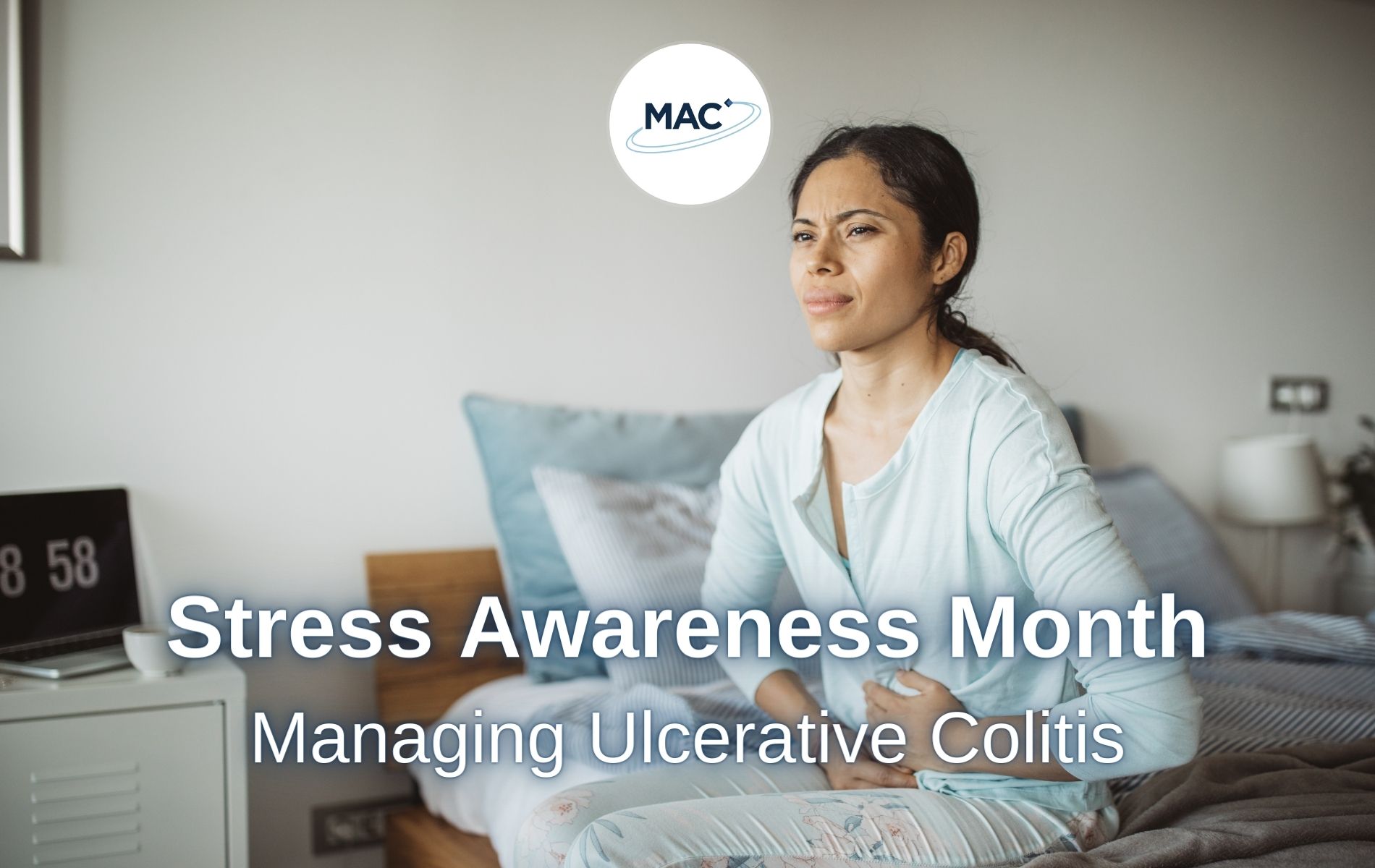We all encounter stress but for those of us living with ulcerative colitis, stress can cause painful flare-ups.
April is Stress Awareness Month, and we want to take this opportunity to raise awareness about how stress can affect both our physical and mental health.
Stress Awareness Month was created by the Stress Management Society. The theme for 2023 is ‘Taking Action’, encouraging others to look deeper into what actions one can take to create a change in their personal and professional life to reduce stress.
One health condition which can be affected by stress is ulcerative colitis (UC). It refers to a type of Inflammatory Bowel Disease (IBD) and is a long-term condition where the colon and rectum become inflamed. Ulcers can also develop on the lining of the colon, causing bleeding and producing pus. When someone lives with UC, they will typically experience symptoms such as frequent diarrhoea, abdominal pain and needing to use the toilet more often.
During what is referred to as a ‘flare up’, people living with UC will experience worsened symptoms and can even encounter symptoms elsewhere in their body such as painful joints and mouth ulcers.
Various things can cause an ulcerative colitis flare-up, such as dietary changes and hormones, and one common cause of flare-ups is stress. Stress triggers our bodies to release chemicals, such as adrenaline, cortisol, and cytokines, which are small proteins that help to control inflammation in our bodies. When we are stressed, cytokine production increases and can trigger increased inflammation throughout the body, including the colon Although the increase in stimulation is typically only temporary, it can trigger a painful flare-up, which may last days or weeks.
In a study from 2013, amongst 60 people with IBD, 42 participants experienced flare-ups and almost half of those stated that they had experienced a stressful occurrence the day before their flare-up.
For this year’s Stress Awareness Month, we can take action against stress which could exacerbate ulcerative colitis, such as exercising more and consuming fewer inflammatory foods. Even a small amount of frequent exercise is known to reduce stress and boost mood by releasing endorphins.
Another way that an ulcerative colitis flare-up induced by stress could be managed is through relaxation techniques; Everything from breathing techniques to meditation, and yoga are ways a person can teach themselves to relax.
Ulcerative colitis can often be painful, frustrating, and at times, a lonely experience. Therefore, communicating openly with others, particularly those who also have the condition and who will be able to truly empathise, may help reduce the stresses that come with living with ulcerative colitis.
MAC Clinical Research is striving to improve the lives of those living with ulcerative colitis. Through patient participation in clinical trials, we hope to improve treatment options and ultimately improve quality of life.
MAC are conducting a new study for a potential ulcerative colitis treatment, but we need your help. If eligible you will receive up to £3915 for your time and commitment and reasonable travel expenses will be paid.
If you are aged 18 – 80, have had ulcerative colitis for at least 3 months and are prepared to help, read more about how you can get involved on our current ulcerative colitis research page.






